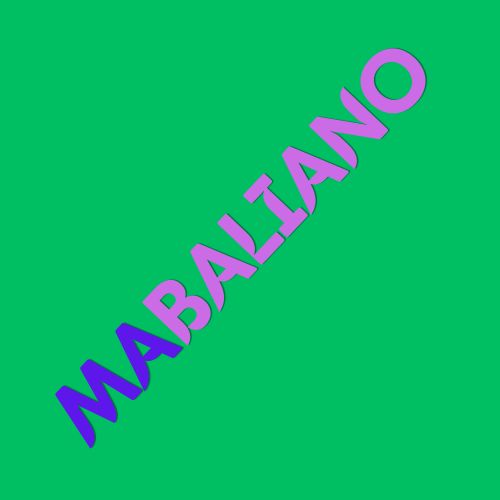
Mabaliano methods of research and consultation
Understanding the baliano process
Baliano (plural is mabaliano) method – in this method, one person goes around seeking opinions from a selected category of people until consensus or agreement (baliano) is reached. The process goes like this: (1) an issue or problem is noted or realised but it is not possible to create a kutano, dare or indaba. (2) those who have noted or realised the issue or problem identify a responsible and relevant person to carry a message (ujumbe) to a category of people, for example, leaders, opinion leaders, parents, children etc. This person that is send is called the mjumbe or messenger and those sending him or her are mtumaji. The person receiving the message is mpokeaji (3) a message is created usually in the form of questions, suggestions, list of things to be selected etc (4) first round – the message is taken to each person selected and the messenger records their feedback (5) the messages are taken back to the senders who will determine where consensus has been reached or not. Senders adjust the message (6) round 2 – the messenger takes the message back to the selected people, pointing where consensus has been achieved and not and changes made. The messenger records feedback again and takes back to the senders. There can be more rounds until consensus is reached. A maximum of four rounds is recommended otherwise more rounds can be interpreted as coercion. Consensus varies, it can be 50% to 100%. The researcher chooses what consensus level that is suitable for their project. (7) The final message is shared. It is important to note that the messenger is send, he or she only carries a message.
To ensure the process and findings are stronger, there are many strategies that could be used including running a baliano at different levels (e.g village, then community), or across different groups (female then female), age groups or if appropriate, you can run rounds at national or global level.
To report results, show the total number of messages, it could be as low as one. The number of rounds and the number of mpokeaji at each round. Show the number of ujumbe that was agreed and disagreed. Use qualitative quotes from mpokeaji to support responses that were made.
Example of a 3-round baliano process
- Guidelines
- Each round will be open for 3-20 days but can close early if a response rate of 100% is reached.
- A round will continue to 10-20 days if a response rate of 75% has not been reached.
- A round will remain open to 20 days if a response rate of 50% has not been reached.
- Consensus is reached when no objection or question has been raised for a point OR when every participant agrees to a point.
- Lack of consensus is declared if an objection has not been resolved and if at least one participant disagrees with a point.
- In round 1, participants will read a draft of a report, guideline or consensus document shared with them and provide feedback.
- The baliano mjumbe, facilitator will review feedback, provide responses where required and put new additional information into the document.
- In round 2, participants will provide feedback on the draft document focusing on the sections where consensus has not been reached and the new information provided by the facilitator.
- The facilitator will review feedback, provide responses where required and put new additional information into the document.
- In round 3 (final), participants will provide feedback on the draft protocol focusing on the sections where consensus has not been reached and the new information provided by facilitator.
- Facilitator will review feedback, decide if sections without consensus are to be removed or kept in the document.
- Points without consensus but with majority of participants in agreement, will be included in the report with the ratio of participants shown.
- Points without consensus and without most participants in agreement, will be listed in an appendix.
- Facilitator will review feedback, decide if sections without consensus are to be removed or kept in the document.
- The final consensus document is produced and disseminated.
Do you have a comment about baliano, please use comment box below?
Use the form below to subscibe to Owia Bulletin.
Discover more from Africa Social Work & Development Network | Mtandao waKazi zaJamii naMaendeleo waAfrika
Subscribe to get the latest posts sent to your email.


